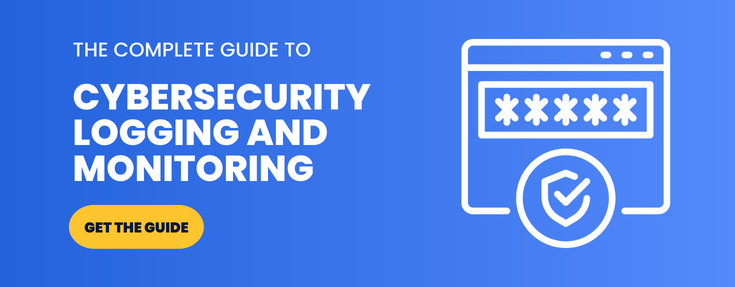What is Compliance Management?

 By
Jason Miller
·
3 minute read
By
Jason Miller
·
3 minute read
Are you in compliance?
If you’re in operations, then you probably just felt a shiver run down your spine. After all, compliance management is something that all businesses need to be concerned with today.
Most businesses are subject to one or multiple regulatory compliance standards, whether this is PCI, FINRA, GDPR, NIST, HIPAA, NERC-CIP, FERC or something else.
Also, no matter whether voluntarily or compulsory, businesses are implementing best practices, such as ISO 27001 and NIST, to make sure their business is protected and there is a guideline for security in place. Plus, not only do you need to consider compliances that are sector specific, but most states and countries have stringent laws in place regarding personally identifiable information, which carry monumental fines for data breaches.
With that being said, read on to discover everything you need to know about managing cybersecurity compliance at your business.
What does managing security compliance actually mean?
Security compliance management is the continual process of defining security policies, as well as auditing for compliance within these policies and ensuring that any instances of non-compliance are resolved. Non-compliance must be managed in accordance with the configuration management policies that are in place at the business in question.
A compliance management system is a practice that an organization puts in place in terms of managing their entire compliance process. This includes their audit compliance functions, which will independently test the compliance program the organization has in place. It also includes adhering to all of the regulations and laws that are applicable to the company, as well as their policies and procedures.
Business drivers for IT security compliance management
There are many different initiatives that drive compliance management today. This includes the following:
- Compliance towards industry regulation and commercial laws: compliance management is needed to keep up with the global business and regulatory environment, which demands on-going audit capabilities. Legislations, which translate into security control requirements, include:
- PCI DSS: For organizations that process credit and debit card information.
- HIPAA: For organizations that are involved in activities that have a potential impact on hygiene and public health.
- Basel II: For organizations that provide financial services.
- Data privacy laws: For any organization that deals with personally identifiable information.
- Compliance to objected efficiency and performance targets: compliance management can also be internally driven so that businesses can ensure they are efficient and profitable. Companies want to not only identify risks but they want to make sure they are working as efficiently as possible so that they will have a competitive edge.
Criteria of an IT security compliance management solution
There are a number of different factors that will impact how IT security compliance management is implemented within a certain environment. The main IT security compliance management dimensions are as follows:
- A selection of IT security controls
- Level of automation
- Level and depth of reporting
- Scope of IT security compliance checking
- Follow up time frame
- Number of IT security controls
- Spot check versus duration check
The key dimensions mentioned above can be derived by considering the following secondary factors:
- The organization’s business environment
- Legal and regulatory obligations
- IT security policy framework maturity
- Technological complexity
- Organizational complexity
The challenges for IT security compliance management
Even if there is a clear IT security compliance goal, which is defined by precise standards and procedure, there is no denying that IT security compliance management can be a difficult task.
This is especially true when you consider that technology and the business environment is changing all of the time. Here are some of the more recent challenges faced in compliance management:
Cloud computing and compliance
There are many benefits associated with processing data in the cloud. However, managing IT security compliance to adhere to laws, regulations, and policies may not be an easy task.
Cost pressure and performance efficiency
Organizations naturally try to do more with less. However, as security compliance is a matter of quality, there is a need for it to be delivered at a lower cost. When you think that one of the biggest operational expenses for business is labor, a lot of businesses will try to automate compliance as much as possible.
The complexity of the IT security compliance criteria
Checking the security controls that are in place for managed systems is essential to make sure that the system does not degrade the posture of its IT security controls because of changes on the system once it has been installed. For example, changes made due to an attacker changing the configuration to compromise the system or hide his/her tracks, or changes that have been made during an upgrade or installation.
The complexity of the environment
Few organizations today can claim that their environment is centralized and homogenous. Geographically distributed systems in big quantities are the norm. Not only do businesses have systems from a number of different vendors, but they also tend to be running numerous versions of operating systems at the same time. This level of complexity is only getting greater.
Maintenance of compliance over time
Even if you have a stable environment, systems are changing all of the time. After all, additional packages are needed, updates must be installed, and patches need to be applied. Because of this, there is a configuration change needed within the underlying operating environment. Furthermore, the ever-growing regulation requirements mean that companies need to keep up-to-date with all of the changes that are happening if they are to remain compliant.
As you can see, there are many variables that need to be considered when it comes to compliance management at any organization. This is something that all businesses need to be concerned with today, irrespective of what industry they operate or the size of their company.
After all, there are laws in place that we all need to adhere too. Compliance management is not only critical for ensuring you stay on the right side of the law, but it can give you a competitive edge too.
If you’re interested in learning how BitLyft can help you stay on top of your security compliance, contact us today. We’d love to have a brief conversation about your technology environment and discuss how we can help.
